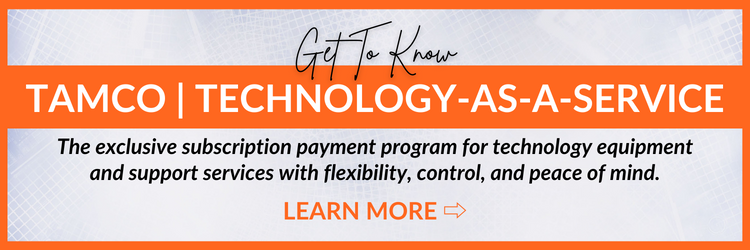In today's fiercely competitive market, manufacturing companies must leverage cutting-edge technology to streamline operations, enhance productivity, and maintain a competitive edge. From automated production lines to artificial intelligence-driven systems, data analytics, and security solutions, technology plays a pivotal role in modern manufacturing. However, traditional ownership-based procurement models pose significant challenges, including high upfront costs, scalability limitations, and the ongoing burden of maintenance and upgrades.
This is where Technology-as-a-Service (TaaS) emerges as a game-changer. By shifting from ownership to a use-based subscription model, manufacturing companies can access the latest technologies without the financial and operational risks associated with outright purchases.
The Challenges of Traditional Technology Ownership
Manufacturers relying on traditional procurement models often face several obstacles:
• Obsolescence
Rapid technological advancements mean that purchased equipment can quickly become outdated, reducing its efficiency and competitiveness.
• High Capital Investment
Acquiring technology outright requires a substantial upfront capital expenditure, which can strain financial resources.
• Maintenance and Repair Costs
Ownership comes with the responsibility of ongoing maintenance, repairs, and potential downtime, which can disrupt operations and increase costs.
• Scalability Issues
As business needs evolve, scaling owned technology can be cumbersome and costly, limiting operational flexibility.
The Benefits of TaaS for Manufacturing Companies
Technology-as-a-Service offers an innovative, flexible, and cost-effective alternative, providing several key advantages:
01. Access to Cutting-Edge Technology
Instead of being locked into outdated systems, manufacturers can continuously upgrade to the latest advancements through a subscription-based model. This ensures they always have access to industry-leading technology.
02. Predictable Monthly Costs
TaaS eliminates large upfront investments, replacing them with manageable, predictable monthly payments. This allows manufacturers to allocate financial resources more effectively and invest in other critical areas of their business.
03. Comprehensive Support and Maintenance
Unlike ownership models where maintenance is an ongoing concern, TaaS solutions often include built-in support, upgrades, and repairs, minimizing downtime and ensuring operational efficiency.
04. Scalability and Flexibility
As business needs change, manufacturers can easily change their technology solutions, ensuring they have the right tools for the job without the usual large capital expenditures.
05. Risk Mitigation
By avoiding ownership, companies mitigate risks associated with technological obsolescence, unexpected repair costs, and unpredictable changes to solution requirements. Instead, they benefit from the power to control what technology migrations to make and when to make them, all without financial strain.
Staying Competitive in an Evolving Industry
The manufacturing industry is evolving rapidly, and companies that fail to adapt risk falling behind. TaaS enables manufacturers to stay agile, respond to market changes more effectively, and optimize operations with the latest innovations. By adopting a use-based subscription model, businesses can focus on growth and efficiency rather than technology management challenges.
Conclusion
For manufacturing companies looking to future-proof their operations, Technology-as-a-Service provides an ideal solution. By eliminating the burdens of ownership while ensuring access to the latest technology, TaaS empowers manufacturers to innovate, streamline processes, and maintain a competitive advantage in an ever-evolving landscape. Now is the time for manufacturers to embrace this revolutionary approach and transform the way they procure technology.


